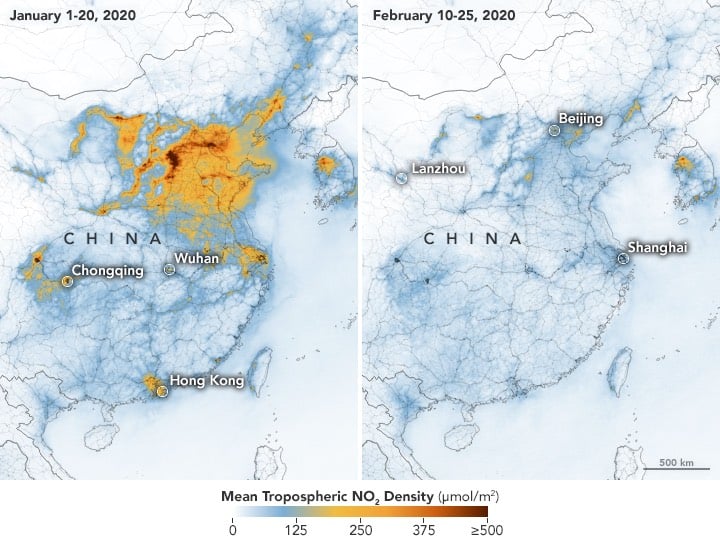Decrease in Economic Activity Due to COVID-19 Reduced Air Pollution and Saved Lives

Stanford professor Marshall Burke, who does research on the social and economic impacts of environmental change, wrote a post about how the decrease in economic activity in China due to COVID-19 quarantine and other countermeasures resulted in a significant drop in air pollution, which Burke estimates will save more lives than deaths caused by COVID-19.
Putting these numbers together [see table below for details] yields some very large reductions in premature mortality. Using the He et al 2016 estimates of the impact of changes in PM on mortality, I calculate that having 2 months of 10ug/m3 reductions in PM2.5 likely has saved the lives of 4,000 kids under 5 and 73,000 adults over 70 in China. Using even more conservative estimates of 10% reduction in mortality per 10ug change, I estimate 1400 under-5 lives saved and 51700 over-70 lives saved. Even under these more conservative assumptions, the lives saved due to the pollution reductions are roughly 20x the number of lives that have been directly lost to the virus.
And his conclusion is not that viral pandemics are a net positive for the world (you will see people naively arguing this, siding a little too closely with a snapping Thanos for my comfort) but that situations like this remind us, as Burke summarized on Twitter: “the way our economies operate absent pandemics has massive hidden health costs”:
But it seems overall incorrect and foolhardy to conclude that pandemics are good for health — and again I emphasize that the effects calculated above are just the health benefits of the air pollution changes, and do not account for the many other short- or long-term negative consequences of social and economic disruption on health or other outcomes. But the calculation is perhaps a useful reminder of the often-hidden health consequences of the status quo, i.e. the substantial costs that our current way of doing things exacts on our health and livelihoods.
Graphic above via NASA.





Stay Connected